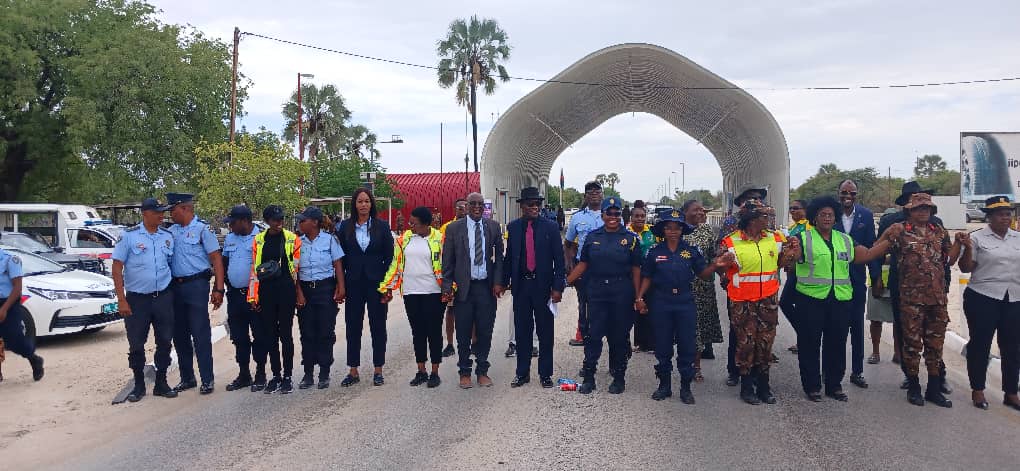On Friday, 13 December, the Electoral Court ordered the Electoral Commission of Namibia (ECN) to grant the Independent Patriots for Change (IPC) and the Landless People’s Movement (LPM) access to specific statistical electoral data related to last month’s National Assembly (NA) election.
This case raises a number of curious questions.
For brevity, only two issues are reflected on here: The legal strategy adopted by the opposition parties, and the NA-presidential elections challenge divide laid down in the Electoral Act.
To start with, it is worth noting that none of parties are alleging electoral irregularities at this stage.
Also, neither of them is challenging the legality of the 28 November Presidential Proclamation.
In fact, the orders requested by the parties from the court are mirror images in terms of substance and differ only in respect of election dates.
WHAT THE PARTIES WANT
Both parties want access to the total number of votes cast, rejected, counted and spoilt, including the total number of people who voted outside their constituencies.
The IPC’s access to information request is confined to the election conducted on 27 November.
That of the LPM, on the other hand, relates to the two extra voting days on 29 and 30 November.
This strategy begs several questions. For instance, what happened to their earlier assertions that the Presidential Proclamation was unlawful?
By not challenging the Presidential Proclamation are the parties not condoning and/or lending legitimacy to an alleged unlawful act?
Could it be that the parties first want to assess how the 29/30 November voting affected them?
If this is true, it would speak worrying volumes about their commitment to the principle of legality and the rule of law.
Further, none of the parties asked the court for an order for the unsealing of electoral material.
They arguably realise that as yet that they don’t have evidence to convince the court to grant such an order.
Can it be that the parties are on a fishing expedition?
In other words, let’s request an order to inspect and verify the electoral documentation thereby fishing for imaginary irregularities and non-compliance with the Electoral Act.
Why go to court for such an information request?
PRESSING QUESTIONS
Is the information being requested not already in the public domain?
Did they not have political party agents stationed at all relevant stages of the electoral process?
Granted, many people voted outside their constituencies.
This is because under the current statutory scheme Namibia is regarded as one constituency for purposes of the presidential and National Assembly elections.
Why cast aspersions on the ECN over this?
Be that as it may, the Electoral Court’s leniency in agreeing to the ICP and LPM’s access to information requests is to be applauded.
In equal measure, the ECN should also be lauded for not opposing the data requests of the two parties.
This is a big win for transparency, accountability and embedding a culture of justification.
WHAT DOES IT INVOLVE?
Inspection of the electoral material for the NA elections will be conducted by five people, as designated by the parties, on 18 and 19 December in the presence of the Namibian Police and ECN officials.
Furthermore, parties who participated in the NA elections may delegate one person to observe the inspection exercise.
What the parties uncover from this will ultimately determine whether or not the outcome for the NA elections will be challenged or not.
Crucially, possible irregularities and non-compliance with the law uncovered during the inspection exercise will have to meet the stringent requirements of sections 114 and 115 of the Electoral Act.
Section 114 deals with the unsealing of electoral material, i.e ballot boxes.
Any unsealing can only happen if so ordered by a court of competent jurisdiction.
Importantly, such an order is only granted where the court is satisfied that sufficient evidence has been produced to warrant an unsealing order.
In this context, the burden of proof will be on the opposition parties to produce such evidence.
Section 115, on the other hand, deals with the nullification of an election.
It establishes materiality as the threshold for invalidating any elections in Namibia.
It expressly stipulates that only material irregularities and non-compliance which undermine the statutory scheme warrant the nullification of an election.
The point here is that all errors are not equal in law.
Some will have more serious consequences than others thereby requiring the invalidation/nullification of an election.
Conversely, some errors will be so immaterial that invalidating an election would be inappropriate in a given instance.
The proverbial ball is in the IPC’s and LPM’s courts.
WHAT IS THE LOGIC?
Lastly, in terms of the Electoral Act, challenges related to the NA elections must be instituted in the Electoral Court/High Court.
In contrast, those pertinent to the presidential elections must be instituted in the Supreme Court which sits as a court of first and final instance on such matters.
The absurdity of this divide is playing out in real time and for all of us to see.
This explains, for instance, why the parties’ access to information requests is confined to the NA election returns.
It is safe to assume that similar data requests in respect of the presidential elections return will be imminently lodged with the Supreme Court.
The NA-presidential elections challenge divide is, in my view, artificial, cumbersome, costly and, strictly speaking, unnecessary.
What logic informs this divide?
It makes Supreme Court judges super deciders and statutory demigods when it comes to issues pertaining to presidential elections returns.
They are the only ones that adjudicate over such matters. And, their decisions are final and binding and not subject to appeal.
Supreme Court judges are human beings and thus fallible.
The fact that they are elevated to superheroes when it comes to presidential election challenges reinforces a demigod leadership culture.
The NA-Presidential elections challenge divide is certainly one of the series of electoral legal reform proposals which is to result from the post-election audit and a key takeaway of the IPC and LPM v ECN case.
- • John B Nakuta is a social justice scholar. He is a life activist on justice, human rights, the rule of law, and governance. This article is written in his personal capacity.
Stay informed with The Namibian – your source for credible journalism. Get in-depth reporting and opinions for
only N$85 a month. Invest in journalism, invest in democracy –
Subscribe Now!






